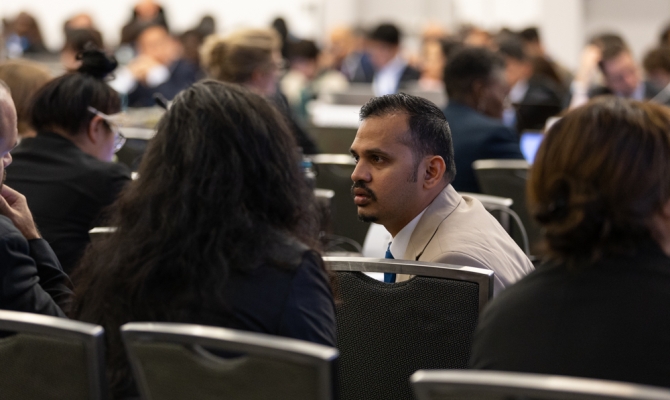
26 April 2024, Ottawa Canada - The fourth session of the Intergovernmental Negotiating Committee to develop an international legally binding instrument on plastic pollution, including in the marine environment (INC-4) in Ottawa Canada has reached the halfway point.
Taking place from 23 to 29 April 2024 at the Shaw Centre, more than 2000 delegates from around the world are combing through the revised draft text of the international legally binding instrument to address plastic pollution, hoping they will leave Ottawa with an agreed text as the Committee pushes to meet the end of 2024 deadline set to complete negotiations.
Since Tuesday, delegates have been wading through how to substantively streamline the revised draft text, offering their preferences for the various options offered.
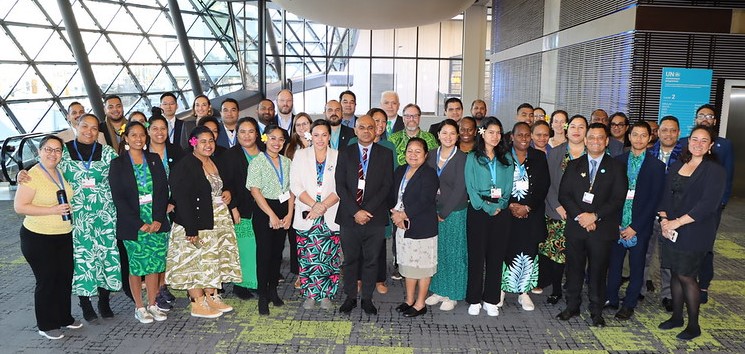
Delegations from 14 Pacific Small Islands Developing States (PSIDS) have been actively engaged in the process since INC-1 in Uruguay, advocating for an ambitious legally binding instrument that will address the full life cycle of plastics from the chemical make-up and production through to distribution, as well as the legacy plastic pollution.
Today, we catch up with Mr Clement Yow Mulalap, Legal Adviser for the Federated States of Micronesia’s (FSM) Permanent Mission to the United Nations in New York, on the state of play. FSM is the lead for PSIDS on several items, including the preamble, principles and the overall scope of the instrument. They are also dealing with crosscutting institutional arrangements, such as the governing body of the secretariat, subsidiary body amongst other issues.
Question: Kaselehlie Clement! Thanks for making time to chat, can you give us a quick update on what is happening?
Answer: We had a big task ahead of us coming into this session trying to figure out what to do with a very expansive revised draft text and so we’ve been doing all we can to streamline the text over the last several days, and get it into a shape where we can get into actual text-based negotiations. There have been different levels of progress but I think overall there has been some progress in that particular objective.
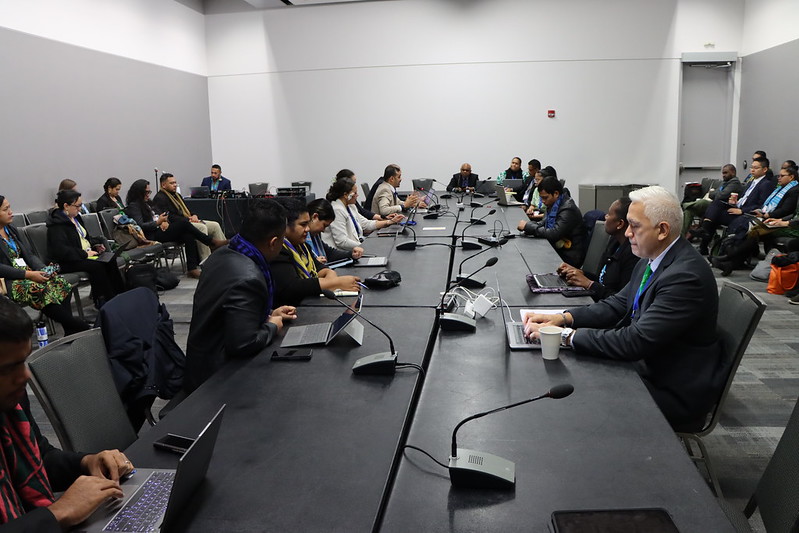
Question: It seems like everyone here agrees that plastic pollution is a problem? What’s the hold-up then and what will it take to finalise the instrument?
Answer: There is broad agreement that plastic pollution is a problem, there is not necessarily a broad agreement that plastics are a problem. There are still differences of views amongst INC members on whether we should just focus on plastic pollution, mainly downstream efforts, or we should take a more comprehensive approach that also deals with plastic in and of itself, including the primary plastic polymers, what goes into them and the various polymers and chemicals.
I think that’s where the main issue is, and if we resolve one way or another, that would lead to a resolution of this INC. We’re still not quite there, it also depends on whether the INC wants to adopt the text by consensus at the end of the process, which means that we might have to make significant compromises for some on that issue of plastic versus plastic pollution or if we are willing to have a text that might not necessarily be endorsed by everyone, but perhaps by a significant majority of the INC members.
That’s still an open question and that is going to have to come down to political will. Legally, you can do one thing or another, you can always shape the law, or the text to whatever you want, but it is the political will at this point that is going to determine what happens.
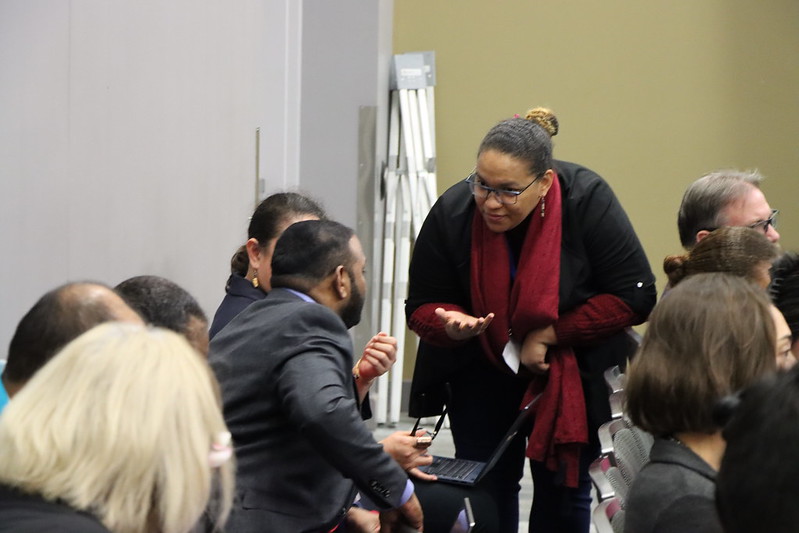
Question: You have been part of this process from INC-1 in Uruguay, from your experience how do you see the next few days playing out?
Answer: I’m hoping that we will get a more streamlined text, I think we are all going into that direction, and I hope we get more clarity on what is expected of us in INC-5 in Busan, especially in terms of text-based negotiations that will hopefully happen there.
I hope we get some clarity on intercessional work which is going to be very important between this session in Ottawa and the next session in Busan, there is quite a bit of work that needs to be done. There won’t be formal negotiations during the intersessional period but we can do a lot of work that can help prepare us for INC-5 and allow us to focus on some really challenging issues there, while having done some intersessional work. I can say that here in Ottawa, various delegations are trying to lay the stones or the foundation to achieve all of that over the next few days, to put us into a good position for INC-5. 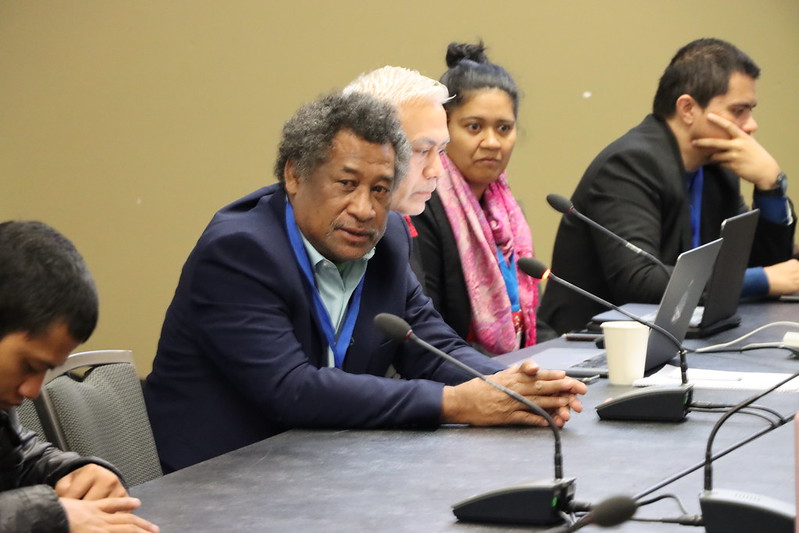
The fourth Intergovernmental Negotiating Committee to develop an international legally binding instrument on plastic pollution, including in the marine environment is taking place in Ottawa, Canada, from 23-29 April 2024.
The Pacific Islands are represented by the Cook Islands, Federated States of Micronesia, Fiji, Kiribati, Marshall Islands, Nauru, Niue, Palau, Papua New Guinea, Samoa, Solomon Islands, Tonga, Tuvalu and Vanuatu through the support of the Government of Australia and the United Nations.
They are supported by the Secretariat of the Pacific Regional Environment Programme (SPREP), working with partners the Pacific Islands Forum Secretariat (PIFS), Office of the Pacific Ocean Commissioner (OPOC), The Pacific Community (SPC), Forum Fisheries Agency (FFA), Environmental Investigation Agency (EIA), Centre for International Environmental Law (CIEL), University of Wollongong, WWF and Massey University.
For more information, visit: https://www.unep.org/inc-plastic-pollution/session-4
Main photo credit: Photo by IISD/ENB - Kiara Worth